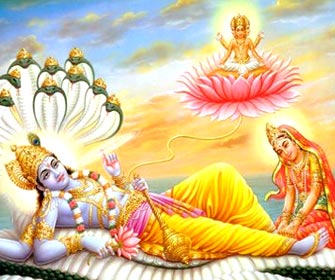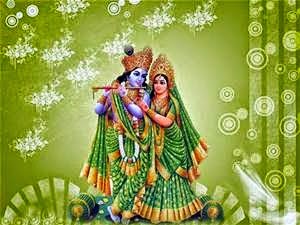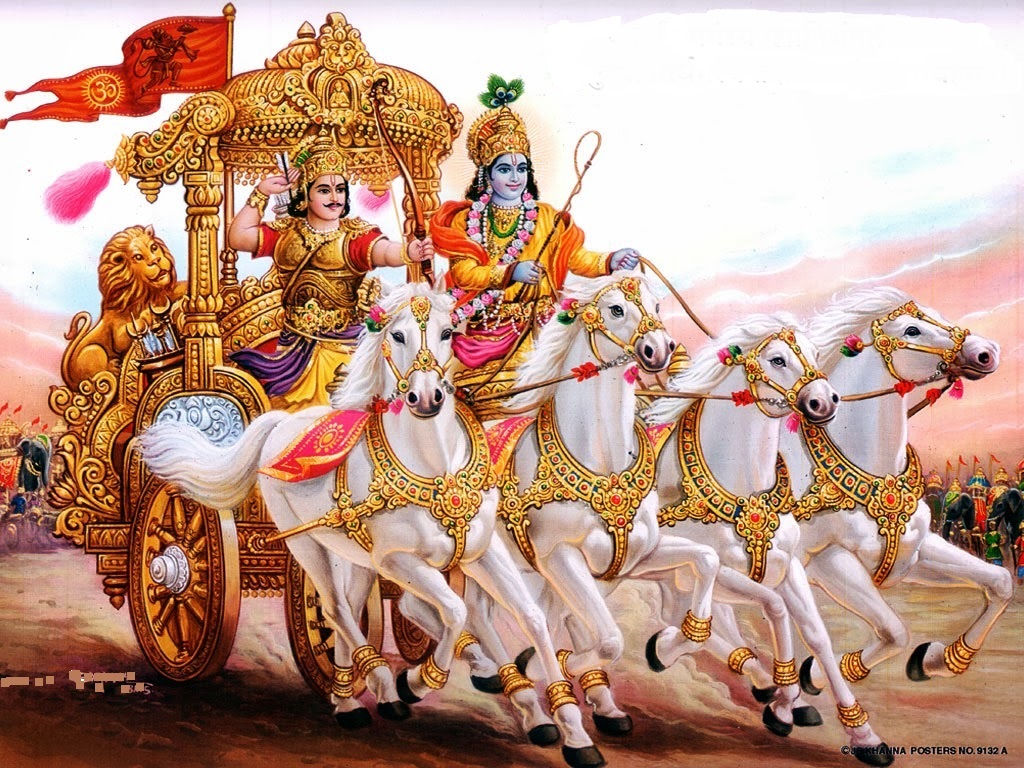The Spiritual Import of the Mahabharata and the Bhagavadgita : Ch-4. Part-4.
4.The Cosmic Manifestation : 4.
And in the tamasic aspect they become this body.
So what is there, in this personality, which is not in the outer world? Whatever the world is made of outwardly is also the substance of this individuality. The gunas, which are the substances of prakriti, are present in the individual experiencer and also in the objects of perception. So the Bhagavadgita says: guna gunesu vartanta—the gunas operate upon the gunas. The eyes see, the ears hear, the tongue tastes, the skin touches, and the nose smells. How it is possible for these senses to function in this manner? The possibility is on account of the fact of the collaboration that already exists basically between the senses and the objects outside, on account of the fact that both are evolutes of the same tanmatras—shabda, sparsha, rupa, rasa and ghanda.
So, the judgment of Arjuna in respect to the world outside, which he declares in the first chapter of the Gita, needs an emendation. What is judgment? It is a reading of meaning into the object by a particular subject; an interpretation of values by investing them with characteristics from outside. But this judgment implies an isolation of the subject from the object. If you are a part of the object itself, the judgment would be difficult. Just as a judge cannot decide in a case if he himself is involved with the parties, if he himself is a client, the judgment of the intellect becomes ultimately untenable. Though acceptable in the beginning stages, ultimately it is not acceptable, because it is impossible to see any meaning in any judgment unless the subject is isolated from the object.
But the two are not so isolated; hence there is a mistake committed by every subject in passing judgment on anything. “Judge not lest you be judged.” The cosmos will judge you if you, as an individual, begin to judge objects. Hence Arjuna’s judgment of values was not acceptable to the cosmic sense of Bhagavan Sri Krishna. Prakriti, which is universally spread out everywhere in space and time, is also beyond space and time. It being the sum and substance of both the objective side and the subjective side, there comes about a necessity to see things in a new light altogether. This new light is called samkhya. We have to visualise things as constituents of prakriti, not forgetting the fact that we are also a constituent thereof. This implies a necessity to rise gradually from the individual placement of values to a cosmic placement of values. Every judgment becomes a cosmic judgment.
It is difficult therefore to know anything unless we know everything. To know anything completely would mean to know everything completely. Only the cosmic mind can know all things correctly, and its judgment alone can be called correct. “So Arjuna, your statements are based on your notion that you are a human being belonging to a class and category, an individual among many others, separate entirely from the objective world—which is not true.”
Hence, a transvaluation of values becomes necessary. The individual has to rise up to the occasion, and the occasion is the recognition of the involvement of the very judge himself in the circumstance of judgment. Well, if this is the truth, what is the duty of the individual under this condition? One cannot act, one cannot move, one cannot even think perhaps, if it is to be accepted that the thinker is inseparable from that which is thought. The answer of Sri Krishna is, “It is not like that. This again is an individual’s judgment, that in that condition no action is possible.” We are imagining that in a cosmic state of things one would be inert, and no activity of any kind would be possible.
To be continued ...





Comments